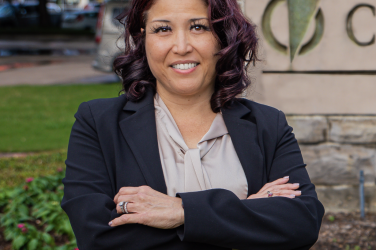
Q&A
Dermatologist
What is psoriasis and how is it treated?
Psoriasis is a chronic autoimmune skin disorder characterized by accelerated skin cell growth. Distinctive salmon-colored plaques adorned with silvery scales often manifest in affected individuals. Treatment strategies vary based on the severity of the condition, extent of skin involvement, and affected regions. Therapeutic modalities include topical creams and ointments, ultraviolet light therapy, as well as oral or injectable prescription medications.
How can I fight the effects of skin aging?
I recommend leveraging the expertise of a board certified dermatologist. They possess unparalleled insight into skin physiology and offer indispensable guidance in aging gracefully. They know how to address concerns such as texture, appearance, and wrinkles associated with aging. Diverse approaches encompass bleaching creams, topical agents, lasers, and chemical peels to mitigate dark spots. Injectable fillers can replenish facial volume, while neuromodulators like Botox and Dysport address wrinkles and sagging. A comprehensive anti-aging regimen tailored by your dermatologist or their cosmetic consultant can help you get the best results.
What is eczema?
Eczema, or atopic dermatitis, typically manifests during childhood and presents as a prevalent inflammatory skin ailment characterized by the development of dry, pruritic patches on the skin. Individuals experiencing such symptoms are advised to seek evaluation by a dermatologist for accurate diagnosis and appropriate therapeutic interventions. While advanced oral medications and injectables are now accessible for severe cases, most eczema instances can be effectively managed through topical treatments, ensuring safety and efficacy in alleviating symptoms.
What are the chances that my children will inherit my acne?
If there’s a family history of acne, consulting a dermatologist for proactive measures or treatment is advisable. Acne, affecting individuals aged 8 to 80, often arises due to hormonal fluctuations, notably in females. Cystic acne, an inflammatory variant, manifests as deep, painful lesions beneath the skin, even in women beyond their 30s. Oral medications countering androgens prove highly efficacious in treating cystic acne, alongside addressing associated symptoms like facial and scalp hair issues. Plus, treatments like chemical peels, skin bleaching, micro-needling, and platelet-rich plasma (PRP) can help smooth out any leftover scars post-treatment.
Should I see a dermatologist even if I don’t have any skin issues?
Yes. I recommend making regular visits to a dermatologist, even in the absence of apparent skin issues. Through comprehensive skin assessments, potential abnormalities like suspicious lesions or moles can be identified early. Individuals with a history of skin cancer or extensive sun exposure benefit from routine screenings. Additionally, those with chronic inflammatory skin conditions such as acne, eczema, or psoriasis require ongoing management for optimal skin health.
About The Expert

Lauren Campbell, MD, FAAD
Cypress Dermatology
Dr. Campbell, a board certified dermatologist, completed her medical training at Baylor College of Medicine. She specializes in medical, cosmetic, and pediatric dermatology, with expertise in dermatology clinical research. She is the medical director of Cypress Dermatology, dedicated to delivering excellent care with a personal touch.










